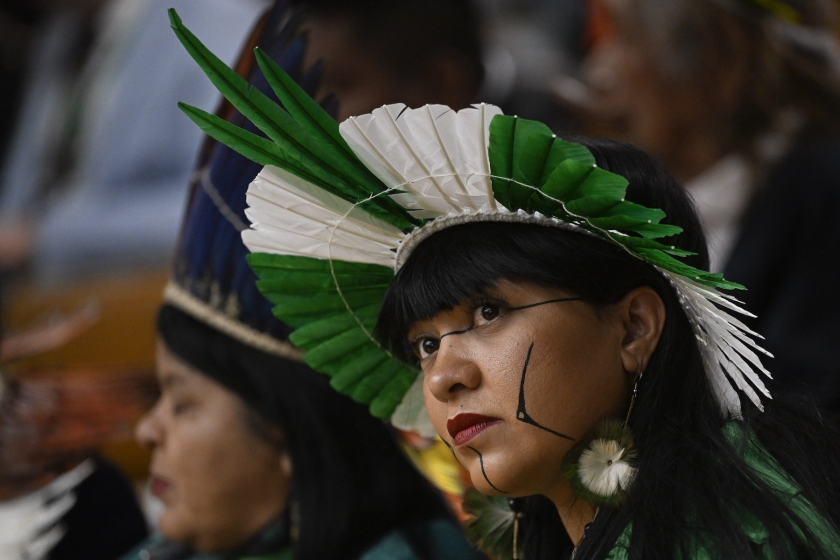
C3S: July 22 hottest day in recent history
July 22 was the hottest day on earth in recent history, according to the Copernicus ...

Indigenous Peoples’ climate lawsuits have had “limited success” at court but they have seen more legal successes before United Nations bodies, according to a recent report from the United Nations Environment Program (UNEP).
Indigenous Peoples often see their cases dismissed on technical grounds before the meat of their argument has been made. Courts frequently reject claims based on the legal concept of standing, saying Indigenous communities have failed to demonstrate that they have been affected by climate change and other environmental threats, says UNEP’s Kameri-Mbote.
Indigenous Peoples also often struggle in court because in many countries the legal system does not recognize land rights without paper titles, something many groups lack, said Beverly Longid, Coordinator of the International Indigenous People Movement for Self-Determination and Liberation.
“There is a need to overhaul the entire legal system as far as lands are concerned, which is not something the state will give up easily,” said Longid, who is based in the Philippines.
Most of those cases centre on human rights issues, with Indigenous Peoples arguing environmental degradation is threatening their culture, their access to food and water, and their lives. More than 100 nations guarantee their citizens a right to a clean environment. A growing number of Indigenous Peoples are also filing suits seeking to hold governments accountable to commitments they have made under international environmental accords, like the Paris climate change agreement.
In Argentina, Australia, Ecuador, France, New Zealand and the United States of America, among other places, Indigenous Peoples have launched climate-related challenges, leading to some major victories. In 2017, Colombia’s Constitutional Court ruled an attempt to divert a river for mining purposes violated the rights of the Wayúu people. The court said climate change had already stifled the river’s flow, and a diversion would threaten the Wayúu’s food security.
There were more than 2,100 climate-change-related court cases filed globally at the end of 2022, more than double the total from 2017, according to a recent report from UNEP. The report did not break down the number of cases launched by Indigenous Peoples, but it notes that those, too, are rising.
As Canada warms twice as fast as the global average, Wet’suwet’en lands have weathered a surge in wildfires and pine-killing beetle infestations, said Chief Dsta’hyl, a community leader. Many Wet’suwet’en worry that left unchecked climate change could devastate local fish stocks, speed the decline of game animals, like moose, and cloud the air with toxic wildfire haze.
“Climate change is going to jeopardize everything,” said Dsta’hyl. “That’s why this climate action has been brought forth. We have a responsibility to our clans… to future generations.”
The Wet’suwet’en are among a growing number of Indigenous Peoples around the world who are turning to the courts to compel countries to take concrete action to address climate change and other environmental perils. Experts have called the cases a new frontier in the global environmental movement and are hopeful they can jumpstart what is, in many places, a halting political effort to counter some of the gravest threats to the planet.
Canada has announced plans to reduce its emissions by up to 45 percent by 2030 and said it is committed to working with Indigenous communities to address climate change.
“It is still early days, but these cases are changing the dynamics of the fight to save the Earth,” said Patricia Kameri-Mbote, the Director of the Law Division at the UNEP. “That’s crucial because humanity is pushing the planet to the breaking point, and we need to reverse course – quickly.”
July 22 was the hottest day on earth in recent history, according to the Copernicus ...
Google has engaged in partnership with DHL to utilize the DHL Express GoGreen Plus service ...
Mars has announced registering a record 8% greenhouse gas (GHG) emissions reduction against its 2015 ...


اترك تعليقا